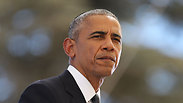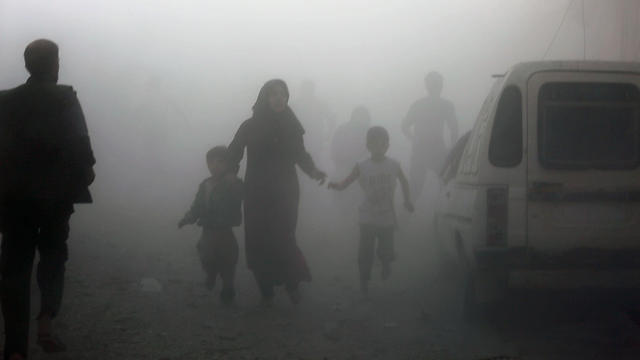

Yet this is just the beginning. The Iraq war forced the American administration to try to advance—as some kind of distorted compensation—a policy of actively pushing for the democratization of the Middle East. That was the reason why the Bush Administration forced the Palestinian Authority elections on Prime Minister Ariel Sharon—free elections in which Hamas participated and won. The administration also went to the trouble of training Egyptian revolutionaries to lead, in due course, a democratic revolution in their country. Of all the failed plans orchestrated by Bush’s people, this actually worked. There was an Arab spring which turned into a nightmare in some places. We are witnessing the results today in Libya, in Syria, in Sinai and in the Gaza Strip.

Would any of the readers here like to send their relative pilot to strike in Syria to stop the slaughter there? Would any of us be willing to risk our own lives or the life of his of her loved ones to prevent the most heinous war crimes since the genocide in Rwanda? The answer is most probably no. The Americans are just as unwilling to volunteer to prevent an international injustice at the risk of their soldiers’ lives. But there is one difference: America has chosen, and chooses every day, to be a superpower. And superpowers pay, or are supposed to pay, a price.
The children of Rome used to learn the Aeneid, the imperial ethos: “Remember, Roman, it is for you to rule the nations with your power, (that will be your skill) to crown peace with law, to spare the conquered, and subdue the proud.” Every Roman knew the price that must be paid for global supremacy, but what was the price that Obama’s America was prepared to pay?
Clearly, America did not withdraw from the world during his term, as is commonly claimed. It boosted its presence in the Pacific areas, for example, mainly as a counterbalance to China. Obama greatly increased the American “soft power,” and his country is gaining growing popularity in the world, particularly after the agreements with Cuba and Iran. But what about the use of power, not just in order to prevent the massacre of innocent people in Aleppo, but also in order to demonstrate Washington’s strength in the region?
Putin’s Russia is a failed country, with a crushed economy and a disastrous demography. The United States is enjoying an impressive momentum of growth and a sparkling image and is leading several technological revolutions. Russia is not a superpower, but is willing to pay the heaviest price—blood—to appear as one. The US is definitely a superpower, but its willingness to use force appears increasingly hesitant.
America is taking revenge against the Russian conduct through, among other things, the international price of oil and sanctions. But in a world where dictators are returning, cautious and sensible long-term processes do not necessarily lead to the anticipated results.
Syria would have served as a difficult test for any American president, but in Obama’s case it embodies a personal Achilles heel: how to defeat hooliganism and hooligans in a complex global reality. Theodore Roosevelt suggested speaking softly and carrying a big stick. There is no doubt that Obama is speaking softly, but the world isn’t sufficiently convinced about the size of the stick.
Nadav Eyal is Channel 10's chief international correspondent.
















